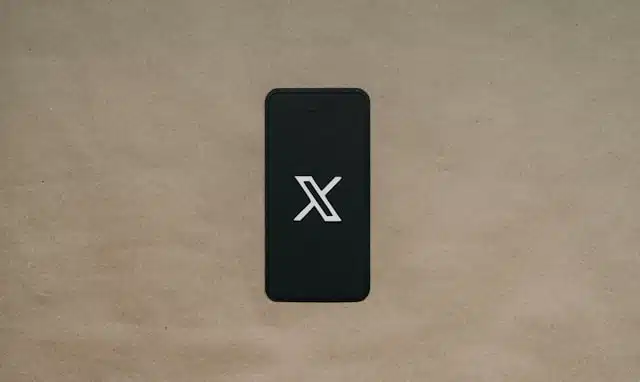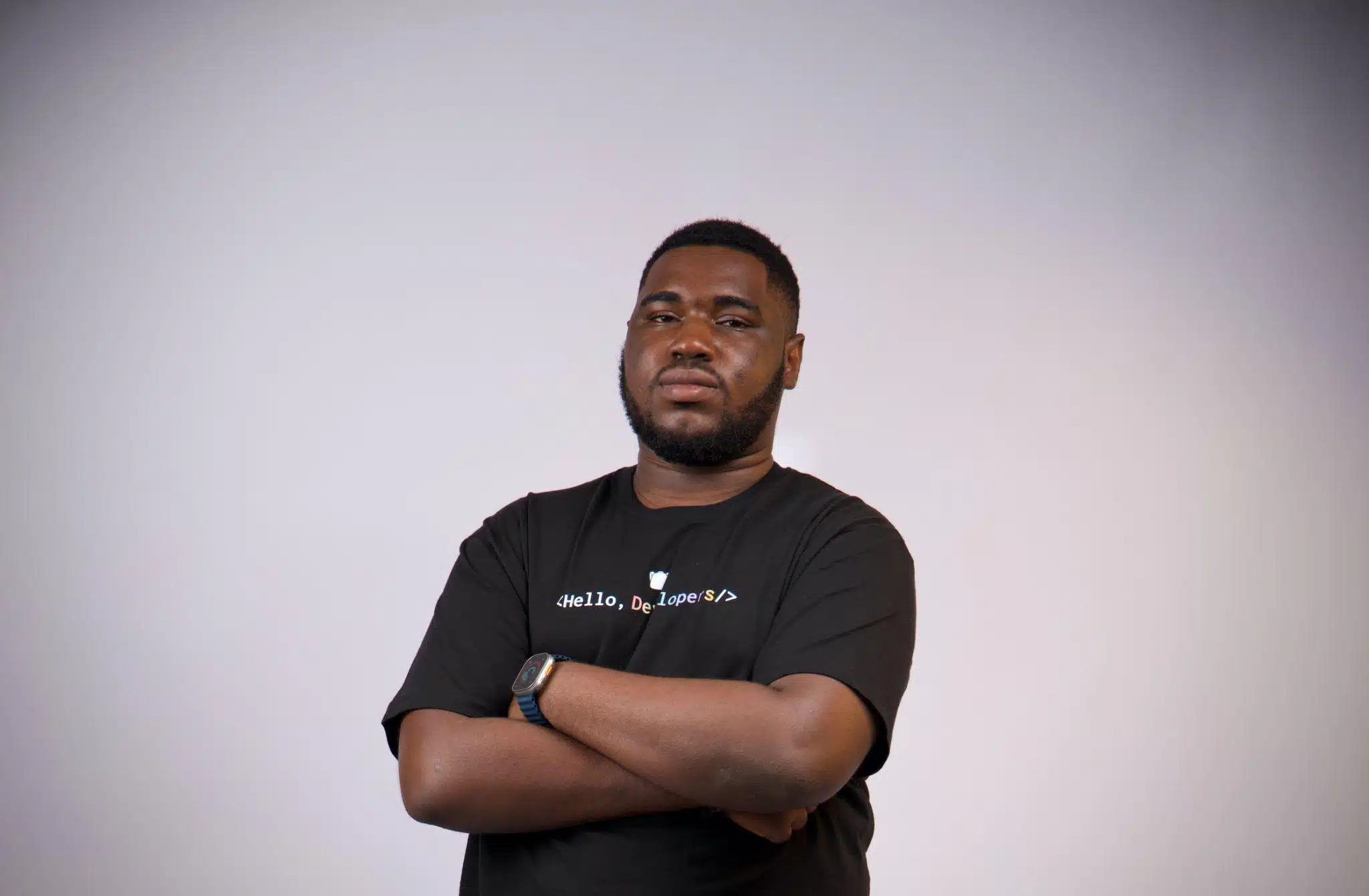Tungjatjeta,
Victoria from Techpoint here,
Here’s what I’ve got for you today:
- X in trouble over Internet code breach in Nigeria
- A doctor in the making, a developer at heart
- Government shelves 35% Ethio Telecom sale
X in trouble over Internet code breach in Nigeria

Big Tech is once again on the radar in Nigeria. Social media giants X (formerly Twitter) and Meta (the parent company of Facebook, Instagram, WhatsApp, and Threads) have failed to fully comply with Nigeria’s Code of Practice for online platforms.
Per the National Information Technology Development Agency (NITDA), both companies refused to submit their 2024 content moderation reports. While Meta at least ticked some boxes, like registering locally, paying taxes, and setting up shop in Nigeria, X didn’t bother with any part of the Code. Zero compliance.
Other platforms like Google, LinkedIn, and TikTok did a bit better, filing reports that showed they collectively took down nearly 59 million harmful posts last year and shut down 13.5 million accounts. They weren’t perfect, but at least they showed up.
NITDA wasn’t impressed with Meta either. The agency pointed out that even though Meta submitted a report, it didn’t use the format prescribed, making it difficult to compare with other platforms. X, on the other hand, didn’t even try, ignoring requirements like opening a local office or naming a compliance officer.
For now, NITDA hasn’t rolled out any punishment, though it confirmed that these lapses are clear violations of the NITDA Act. The agency said it’s still considering what kind of sanctions to impose since the Code doesn’t spell that out directly.
The Internet Code of Practice, introduced in 2022, was meant to make platforms more accountable for harmful content like deepfakes, revenge porn, and child abuse material. It also gives regulators power to demand user information in certain legal cases. As ex-minister Isa Pantami once put it, the rules were created to keep Big Tech from “becoming bigger than the government.”

Victoria Fakiya – Senior Writer
Techpoint Digest
Stop struggling to find your tech career path
Discover in-demand tech skills and build a standout portfolio in this FREE 5-day email course
A doctor in the making, a developer at heart

Balancing medicine and tech isn’t something you hear every day, but that’s exactly the life Tobilola Adebayo is living. The final-year medical student at UNILAG is splitting his time between school, clinical rotations, and a budding career in software development.
For him, medicine has been an eight-year marathon — one that’s both draining and rewarding. “It’s stressful,” he admits, but watching patients recover makes it worth it. The workload, however, is relentless. Holidays are short, the programme runs continuously, and even after graduation, there’s still a mandatory one-year internship before full licensing.
But in 2020, in the middle of the pandemic, Tobilola found a new spark: tech. While his classmates were catching up on their books, he went down a different rabbit hole. First, it was UI/UX design, but that didn’t click. Then came web development, and suddenly, he found something that felt just as demanding as medicine but a lot more flexible.
His learning journey wasn’t the polished “self-taught” story you often hear. Instead, it was a mix of YouTube tutorials, Udemy courses, random articles, and endless Googling. What fascinated him most was writing code and instantly seeing the results, a different kind of problem-solving compared to clinical diagnoses.
Soon, he was experimenting beyond the basics. He dabbled in Solidity, joined a Web3 group during a school strike, and even entered a Polygon hackathon. His team didn’t win, but they walked away with a consolation prize, proof that his efforts weren’t in vain. Even so, he always circled back to what felt most natural: front-end web and mobile app development.
Now, Tobilola is at the crossroads of medicine and technology, dreaming of building solutions for Africa’s healthcare sector. Want to know more about the challenges he faced and how he’s scaling through? Find out in Delight’s latest edition of After Hours.
Government shelved 35% Ethio Telecom sale

Ethiopia has quietly put the brakes on its plan to sell 35% of Ethio Telecom to foreign investors. The move was meant to be a major step in the country’s economic reform drive, but for now, the sale is off the table.
Per Addis Insights, the government isn’t in a hurry anymore. Officials are reassessing how much local ownership should factor into the deal and, at least for now, there’s no timeline for letting foreign or domestic players buy into the giant state-run telco
In April 2025, Reuters reported that Ethiopia’s state-owned Ethio Telecom didn’t quite hit the mark with its first-ever public share sale. The plan was to shrink the government’s 45% stake and get everyday Ethiopians more involved as shareholders. But in the end, they only sold about 10.7% of the shares they offered.
Consequently, this new move is a big shift. Ethio Telecom has long been a monopoly, serving more than 60 million subscribers and standing tall as one of Africa’s biggest operators. The liberalisation push began in 2019 under the Homegrown Economic Reform Agenda, with hopes of pulling in foreign cash and expertise.
The first real crack came in 2021, when Safaricom Ethiopia entered the market after paying $850 million for a licence. Since then, the newcomer has been on a roll — launching M-Pesa, adding subscribers fast, and forcing Ethio Telecom to fight back with cheaper bundles and its own mobile money platform, Telebirr, which already claims 30 million users.
So why the U-turn? A cocktail of reasons. Inflation, debt, and forex shortages are squeezing investor appetite. Ongoing political instability has also made big-money buyers wary. And with Safaricom still in its early days, regulators may want to watch how the market settles before letting go of Ethio Telecom shares.
For now, Ethiopia’s telecom scene is shaping up as a two-horse race: Safaricom scaling up aggressively, and Ethio Telecom staying firmly in government hands. With a population of 120 million and a digital economy that’s just taking off, the stakes remain high. The question is when, or if, Ethiopia will finally throw open the doors to full-scale telecom privatisation.
In case you missed it
- SARB opens national payment system to fintechs under new rules
What I’m watching
- Dr K: We Are Producing Millions Of Lonely, Addicted, Purposeless Men & Women!
- Michael Sandel: The lost art of democratic debate
Opportunities
- Businessfront, the parent company of Techpoint Africa, is looking for a Managing Editor (FMCG). Apply here.
- Africa’s venture scene takes the spotlight at the Lagos Venture Finance Summit on September 5th, 2025. Hosted by Vencapital, the Summit gathers top LPs, GPs, policymakers and ecosystem leaders for high-level conversations, networking and dealmaking. A must-attend for those shaping Africa’s next wave of venture capital. Register here.
- Paystack is hiring for several roles in Nigeria and South Africa. Apply here.
- Paga is recruiting for several positions. Apply here.
- Want to attend an evening of connection, conversation, and insight on how data is shaping East Africa’s creative economy? Join Communiqué on Thursday, August 21, at 6pm, at Alliance Française, Nairobi, featuring Brian Kimanzi, Mars Maasai (HEVA Fund), Ezy Onyango (PAIPEC-CCI), Wangui Njoroge and more. Register here.
- Moniepoint is hiring for several positions. Apply here.
- Businessfront, the parent company of Techpoint Africa, is looking for a Researcher and Scriptwriter Intern for Businessfront TV. Apply here.
- Are you building a startup can feel isolating, but with Equity Merchants CommunityConnect, you can network with fellow founders, experts, and investors, gaining valuable insights and exclusive resources to help you grow your business. Click here to join.
- Help us make Techpoint better for you! Your feedback shapes what comes next (your responses may potentially save my job. A bit dramatic, but still). It will only take 30 seconds to tell us what works and what doesn’t. Fill it here.
- To pitch your startup or product to a live audience, check out this link.
- Have any fresh products you’d like us to start selling? Check out this link here.
- Follow Techpoint Africa’s WhatsApp channel to stay on top of the latest trends and news in the African tech space here.
Have a productive week!
Victoria Fakiya for Techpoint Africa









